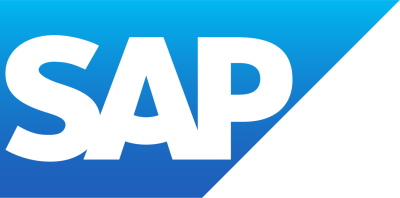Honeywell's New Forge for Airlines Solution Helps Airlines Become More Profitable with Prescriptive Maintenance
Brought to you by WBR Insights
Unscheduled maintenance events have a big-time impact on an airline's scheduled performance, passenger satisfaction, and bottom line - to the tune of $10 million to $50 million per year. That's according to Honeywell's Josh Melin, Product Line Director for Honeywell Forge Connected Maintenance. He says the trouble stems from the current generation of predictive maintenance tools - which many of today's aerospace companies rely upon - not living up to the hype.
"While they can identify a component that is likely to fail, current predictive maintenance tools aren't able to provide much useful information about the nature of the problem," writes Melin. "Technicians still need to go through the time-consuming process of removing, troubleshooting and repairing or replacing the faulty unit. Sometimes, they're unable to duplicate the problem, resulting in a frustrating no-fault-found conclusion."
In other words, while predictive maintenance tools may well be able to predict which components will fail and when, they do little to shed light on what to do about it. For that, airline maintenance teams need more than predictive solutions - they need prescriptive ones. Melin believes Honeywell has the answer.
Honeywell Forge for Airlines
In June 2019, Honeywell announced Honeywell Forge for Airlines - an advanced analytics-based platform for airlines, and the next evolution of what was formerly known as Honeywell's GoDirect Connected Maintenance and GoDirect Flight Efficiency solutions.
Utilizing the Industrial Internet of Things (IIoT), Melin says Honeywell has developed the aviation industry's first true prescriptive maintenance solution. "We provide maintenance teams information that can eliminate the bulk of unscheduled events by preventing faults from happening in the first place. Our breakthrough approach uses advanced predictive analytics to provide alerts of impending failures with prescribed maintenance actions. It uses cognitive diagnostics to accelerate the time to fix. And it uses connected airplane technologies to wirelessly transfer databases, software and flight data to and from the aircraft."
It's been just over two years since Honeywell first launched its Connected Aircraft suite of apps and tools. Since then, airlines using the company's connected maintenance solutions have experienced a 30-50% reduction in operational disruptions caused by auxiliary power units (APUs), and a 10-15% reduction in costly, premature removals, says Melin. No-fault-found (NFF) rates have also been reduced to 1.5%, and the service has achieved 99% predictive accuracy.
On the new Honeywell Forge for Airlines platform, Honeywell has integrated all its existing applications and solutions for flight operations, flight efficiency, and connected maintenance into a single user interface. This allows customers to get a holistic view on real-time data - enhanced with analytics and enriched with recommendations - via a single, easy-to-use, and individually customizable dashboard.
Airlines can now start orchestrating their whole business operation - from optimizing flight plans and fuel efficiency to scheduling maintenance well in advance - with greater ease and efficiency to maximize profitability.
"Airlines want an easy solution to analyze and manage their costs in one place, and Honeywell is providing it through unlocking their data to create what is essentially their own profit calculator," said Director, Customer and Product Support at Honeywell Aerospace, John Peterson. "This tool will forecast how much money airlines can save based on the data-driven decisions they make by using it. It's a modular, adaptable and easy-to-personalize service that meets a specific or critical airline need. It puts them in control."
By providing alerts and identifying savings opportunities, Honeywell Forge for Airlines helps airlines improve workflows between pilots, ground maintenance, and operations to increase productivity. In this way, airlines can use the solution to address pressing operational pain points, such as flight delays due to unexpected aircraft maintenance. This all impacts the bottom line. With Forge, maintenance savings of up to $40,000 per aircraft per year can be realized, according to the company.
One area, for example, that Forge is being utilized to reduce unscheduled maintenance is in hydraulic systems. These systems are used in commercial aircraft to operate landing gear, wheels, brakes, flight controls, thrust reversers, and other flight- and safety-critical components.
According to Melin, Forge's predictive and prescriptive hydraulics maintenance tools can reduce 80% of delay events and 40% of minimum equipment list events. "That means our solution can catch on average 80% of the imminent failures on the hydraulic LRUs [line-replaceable units] that we cover before they become failures that impact the operation," he says. "And our solution can catch on average 40% of the imminent failures on the hydraulics LRUs that we cover before they would become an MEL [minimum equipment list] event." He adds that false warnings are relatively rare. "The accuracy of our hydraulics predictive models is over 95%."
Final Thoughts
Significant gains can be made by using processes and technologies that enable maintenance teams to get ahead of the game, and Honeywell's new Forge for Airlines solution is doing just that. Using the latest data analytics technology to predict in advance which parts will fail and prescribe the best actions to take, Honeywell is providing a solution that ultimately helps airlines reduce costs and unscheduled delays while maximizing fleet availability.
It's already resulting in huge improvements for some airlines. Across 61 aircraft operated by Hong Kong's flagship airline Cathay Pacific, for example, Forge collected and analyzed 1.6 million flight records, 327,000 maintenance entries, 44,000 fault messages, and 13,000 APU reports to produce a predictive model report for the airline's maintenance team up to three days before actual failure. As a result, the airline reduced delays and cancellations by 30%, lowered repair times by 90%, and experienced improved customer satisfaction.
Honeywell now has more than 100 airlines and 8,000 total business and commercial aircraft utilizing Forge. "Our focus so far has been the kinds of equipment that cause the highest number of delays and cancellations, as reported by the Air Transport Association," says Melin. "Eventually, prescriptive maintenance techniques will no doubt be used nose-to-tail, boosting efficiency throughout the airline value chain."
Prescriptive maintenance is set to be a hot topic at Field Service Palm Springs 2020, taking place in April at the JW Marriott Palm Desert Resort & Spa, CA.
Download the Agenda today for more insights and information.



































